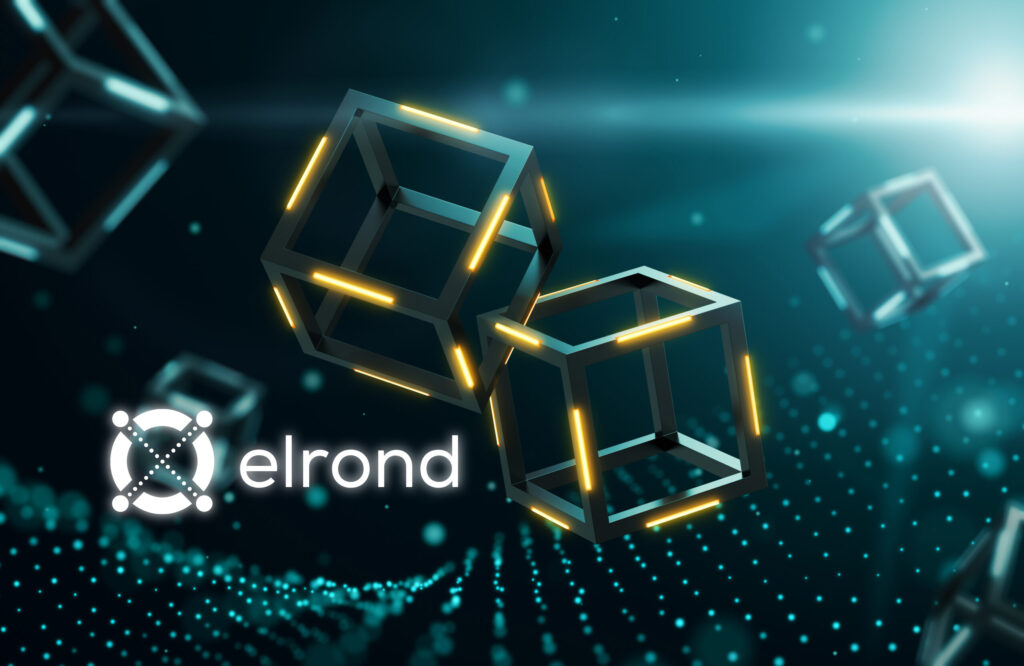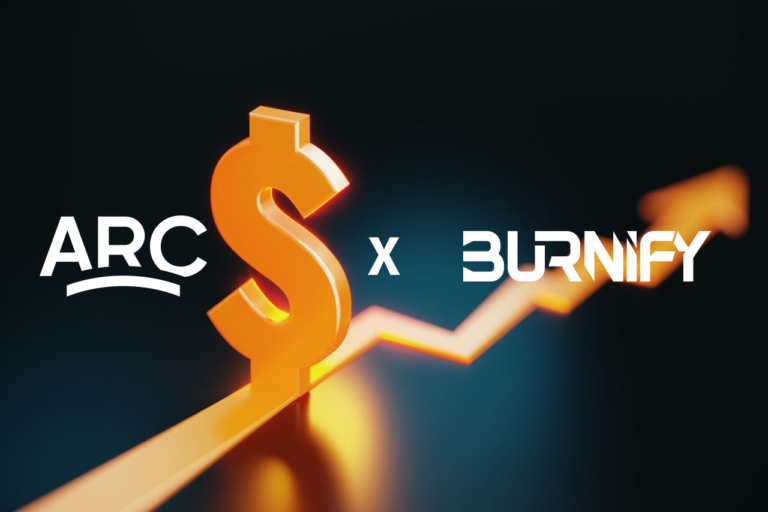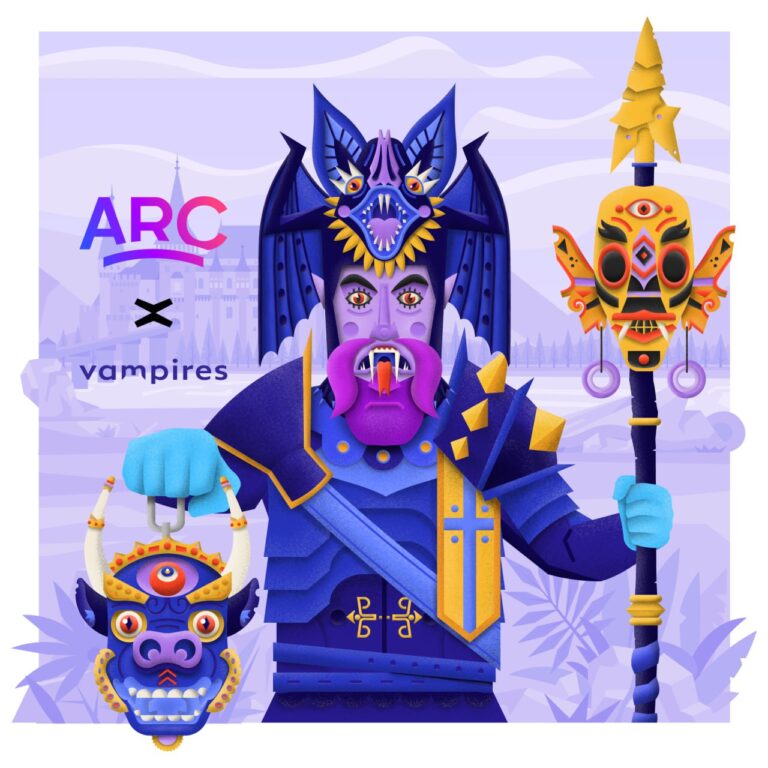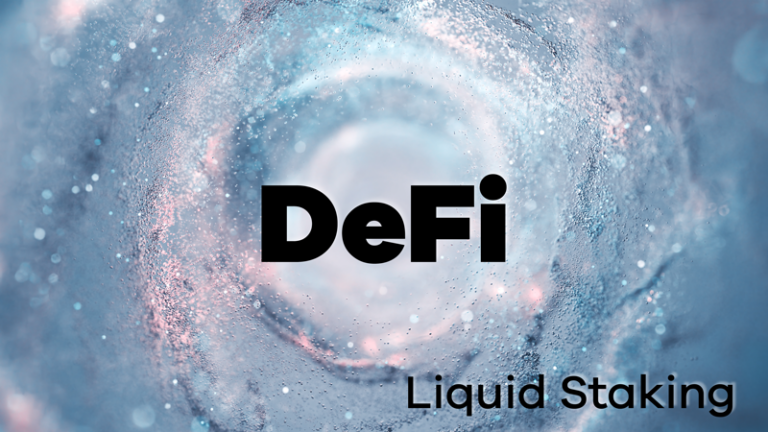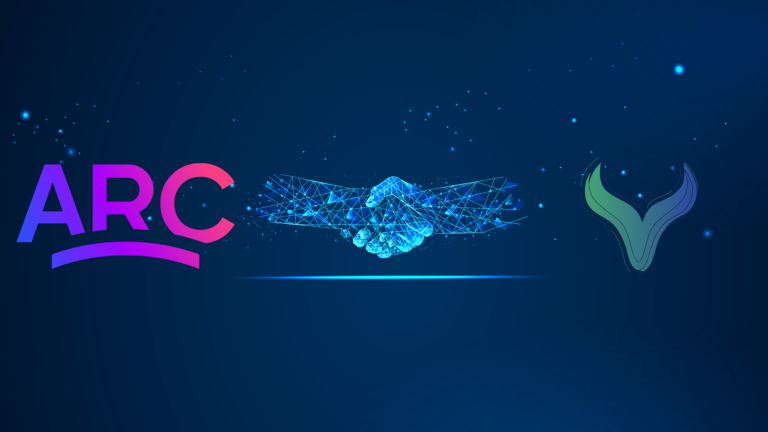Elrond is a high-throughput public blockchain, focused on providing security, efficiency, scalability and interoperability by integrating two essential elements: Adaptive State Sharding and a new Secure Proof of Stake (sPoS) consensus mechanism. And this is not all, it is also a complete DeFi, Fintech & IoT ecosystem, providing a scalable and secure platform for building distributed applications called dApps.
Elrond generates its value from its technical potential, the technology behind the project, its ability to scale, its offering of enterprise grade solutions for dApps and digital assets, and its vast utility in general. It has the most advanced technology of all blockchains today. Elrond is a cryptocurrency with an infrastructure and native features far superior to those of Ethereum and has good chances to overtake it. Elrond is a project which is able to bring blockchain technology to mass adoption.
Elrond’s vision consists of an amazing team, respecting their targets, an ambitious roadmap and a strategic token, $EGLD. It brings a genuine technological revolution by successfully implementing the concepts of “sharding”, “consensus”, “virtual machine” and “smart account”.
The Elrond project started in 2013 with a team composed of three people: Beniamin Mincu (CEO), Lucian Todea (COO) and Lucian Mincu (CIO). They brought later together many experts from prestigious companies such as Intel, IBM, Microsoft and Google, and established to solve the famous blockchain trilemma: decentralization, security and scalability. This awesome team manages brilliantly multiple areas, such as IT, blockchain, design, AI, communication, maths and infrastructure. Their work led to an original blockchain architecture, different from anything that exists in the cryptocurrency market.

The amazing capabilities of the Elrond blockchain
During the testing phase, the Elrond blockchain achieved a peak of 260,000 transactions per second (TPS)! In order to make a comparison, Bitcoin can perform 7 TPS and Ethereum 20 TPS. Elrond also exceedes Visa’s/Mastercard’s performance, that of 24,000 TPS.
After the very successful testing period, the Elrond mainnet was launched on July 30th 2020. After the launch, hundreds of important companies have signed partnerships with Elrond. The list of partners includes worldwide leading exchanges and wallets (Binance, Crypto.com, Coinbase, Bithumb Global, eToroX , Ledger, Coin98 Wallet, Trust Wallet etc.), dozens of verified Staking Providers (Binance Staking, Just Mining, Everstake, ARC Stake etc.), DeFi integrations (Netopia Payments, AllianceBlock, Antimatter, Injective Protocol etc.), multiple startsups building on Elrond (Aerovek, Black Hat Network, Dotmoovs, Moonlorian etc.), infrastructure integrations (Utrust, Copper, PARSIQ etc.), oracles (Chainlink, Razor, Umbrella Network etc.), research partners (Runtime Verification, Matic etc.), capital investment companies (Morningstar Ventures, Binance Labs, Woodstock etc.), launchpads (Impossible Finance, Seedify etc.), media partners (Untold, Unfinished etc.) and many, many others.
Elrond’s main ambitious and long term targets are:
- offering all businesses the possibility to build dApps on the Elrond Network
- making achievable for all individuals to use $EGLD as an exchange token
- giving the $EGLD coin the status of store of value
- facilitating the tokenization process of data, identity and property.
$EGLD, the native coin of the Elrond blockchain
The eGold coin ($EGLD) is the digital and improved version of pure gold. It maintains the status of store of value and is lighter, more liquid and more practical than physical gold. The token has a strong utility at multiple levels (e.g. value transfer, transaction fees, rewards payment, deployment and execution of smart contracts, swaps on Maiar Exchange).
The current circulating supply is $EGLD 20,508,243. The theoretical maximum circulation would be of $EGLD 31,415,926, which makes very small fractions of $EGLD available for the total world’s population of around 8 billion. Besides this, the large number of transactions on the network will reduce emissions and will make the coin even more scarce.
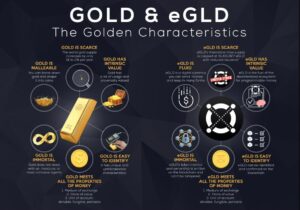
Sharding
Elrond is the only highly scalable blockchain, without compromising security or decentralization. It manages to solve completely the blockchain trilemma, without sacrificing any element. Elrond uses three main types of sharding: network sharding, transaction sharding and state sharding. The Elrond Adaptive State Sharding ensures that the network can process thousands of transactions per second, with extremely low fees.
The scalability on the Elrond blockchain is technically infinite, thanks to the sharding. Sharding means the partition of a larger part into smaller parts, called fragments. Elrond uses horizontal sharding and the number of fragments is adaptable. Having 3 shards, the Elrond network can easily support 15,000 TPS, but this number can be increased when needed, with the update of the network’s settings.
Each shard contains addresses, smart contracts, blockchain and transaction processing. Transactions are distributed across all shards, to reduce latency. All these shards are driven by another special shard, that has its own consensus and which allows synchronization of the other fragments: the metachain. It is the control tower of the Elrond sharding.
The Metachain runs in a special, dedicated shard, where the main tasks are not processing of transactions, but managing and finalizing the processed shard block headers, facilitating communication between shards, storing and maintaining a registry of validators, triggering new epochs, processing fisherman challenges, rewarding and slashing.
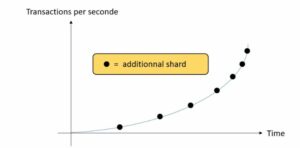
Nodes
What’s unique about the Elrond network is the large number of nodes and the remarkable level of security. The Elrond network is composed of 3,200 nodes, scattered mainly in Europe (59%), North America (34%) and Asia (6%).
A node is an application started on a computer, which runs the Elrond protocol. There are four types of nodes, as a combination between the following categories:
- participating (“block validators”)
- non-participating (“observers”)
- complete (complete history of the blockcain)
- light (partial history of the blockchain).
The four resulting types of nodes are “full participating”, “full non-participating”, “light participating” and “light non-participating”.
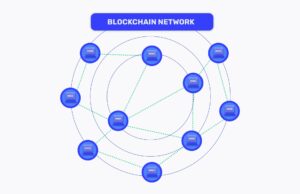
Consensus
Proof-of-Work (PoW) or “mining” is the consensus specific to Bitcoin and Ethereum, which is slow and energy consuming. The nodes are put in competition by the computing power.
Proof-of-Stake (PoS) is another type of consensus, which aims to reduce energy consumption, while ensuring high security. It is based on the number of tokens holded by the nodes and not on the amount of work done by them.
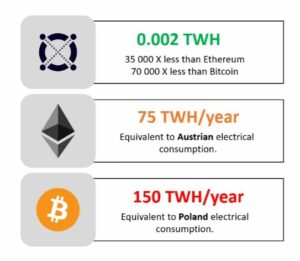
Elrond created a far superior version of Proof-of-Stake, the Secure Proof-of-Stake (sPoS), which goes much further with the implementation of improvements that make it even more secure and fair. Its consensus-building approach makes it innovative and futuristic, where validator nodes are selected for consensus out of a shard. The multiple advantages of sPoS are the optimal safety, the negative carbon emissions, decentralization, speed, fairness and the fact that nodes are collaborative.
Chronology on Elrond blockchain is counted in rounds and epochs. A round is a block validation, with a fixed duration of 6 seconds (10 minutes on Bitcoin and 15 seconds on Ethereum). An epoch is a 24 hours period, during which thousands of rounds follow one another. At the end of an epoch is initiated a reorganization of the nodes and shards.
The sPoS consensus reduces the latency in the network and allows any node in the shard to determine which members will be part of the consensus group at the start of each round. Randomization is provided through the aggregated signature from the last block.
The Elrond virtual machine (WASM VM)
The virtual machine is the most important component of a smart contracts execution platform. The Elrond VM is one of the fastest virtual machines in the blockchain space and its attributes are stability & security, high performance, stateless execution, composability and predictability.
The Elrond WASM VM is an exceptionally fast virtual machine for executing smart contracts, written in any programming language that can compile to WebAssembly, such as C, C++, C#, Rust, Go, TypeScript, and many others.
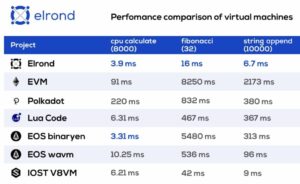
Conclusion
“Elrond is the first highly scalable public blockchain that uses the newly proposed Secure Proof of Stake algorithm in a genuine state-sharded architecture to achieve VISA level throughput and confirmation times of seconds. Elrond’s novel approach on adaptive state sharding improves on Omniledger’s proposal increasing security and throughput, while the built-in automatic transaction routing and state redundancy mechanisms considerably reduce latencies. By using a shard pruning technique the bootstrapping and storage costs are also considerably reduced compared to other approaches. The newly introduced Secure Proof of Stake consensus algorithm ensures distributed fairness and improves on Algorand’s idea of random selection, reducing the time needed for the random selection of the consensus group from 12 seconds to 100 ms. Our method of combining state sharding and the very efficient Secure Proof of Stake consensus algorithm has shown promising results in our initial estimations, validated by our latest testnet results.” (Elrond Whitepaper, June, 19, 2019)
CONNECT WITH ELROND!
- The official website:
- Profiles on Twitter:
@beniaminmincu, @luciantodea, @lucianmincu, @ElrondNetwork, @getMaiar, @MaiarExchange, @ElrondWarriors, @WesleyBKress, @CryptoTechs
- Facebook Page:
https://www.facebook.com/ElrondNetwork
- Smart links:

